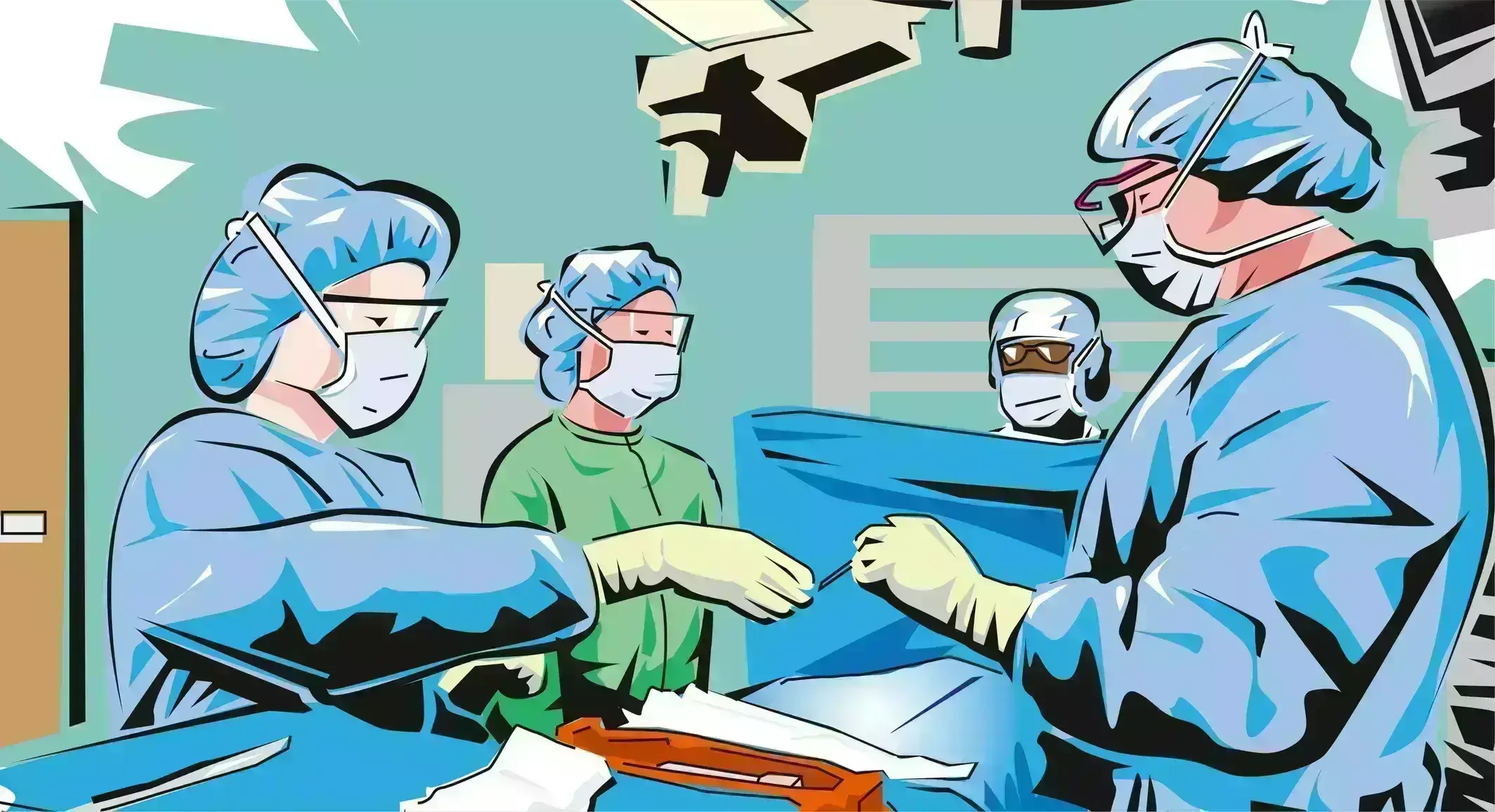- Home
- Medical news & Guidelines
- Anesthesiology
- Cardiology and CTVS
- Critical Care
- Dentistry
- Dermatology
- Diabetes and Endocrinology
- ENT
- Gastroenterology
- Medicine
- Nephrology
- Neurology
- Obstretics-Gynaecology
- Oncology
- Ophthalmology
- Orthopaedics
- Pediatrics-Neonatology
- Psychiatry
- Pulmonology
- Radiology
- Surgery
- Urology
- Laboratory Medicine
- Diet
- Nursing
- Paramedical
- Physiotherapy
- Health news
- Fact Check
- Bone Health Fact Check
- Brain Health Fact Check
- Cancer Related Fact Check
- Child Care Fact Check
- Dental and oral health fact check
- Diabetes and metabolic health fact check
- Diet and Nutrition Fact Check
- Eye and ENT Care Fact Check
- Fitness fact check
- Gut health fact check
- Heart health fact check
- Kidney health fact check
- Medical education fact check
- Men's health fact check
- Respiratory fact check
- Skin and hair care fact check
- Vaccine and Immunization fact check
- Women's health fact check
- AYUSH
- State News
- Andaman and Nicobar Islands
- Andhra Pradesh
- Arunachal Pradesh
- Assam
- Bihar
- Chandigarh
- Chattisgarh
- Dadra and Nagar Haveli
- Daman and Diu
- Delhi
- Goa
- Gujarat
- Haryana
- Himachal Pradesh
- Jammu & Kashmir
- Jharkhand
- Karnataka
- Kerala
- Ladakh
- Lakshadweep
- Madhya Pradesh
- Maharashtra
- Manipur
- Meghalaya
- Mizoram
- Nagaland
- Odisha
- Puducherry
- Punjab
- Rajasthan
- Sikkim
- Tamil Nadu
- Telangana
- Tripura
- Uttar Pradesh
- Uttrakhand
- West Bengal
- Medical Education
- Industry
SEAL score may assess severity of Anastomotic Leak after oesophagectomy

SEAL score may assess severity of Anastomotic Leak after oesophagectomy suggests a recent study published in the British Journal of Surgery
Anastomotic leak (AL) is a common but severe complication after oesophagectomy. It is unknown how to determine the severity of AL objectively at diagnosis. Determining leak severity may guide treatment decisions and improve future research. This study aimed to identify leak-related prognostic factors for mortality, and to develop a Severity of oEsophageal Anastomotic Leak (SEAL) score.
This international, retrospective cohort study in 71 centres worldwide included patients with Anastomotic leak after oesophagectomy between 2011 and 2019. The primary endpoint was 90-day mortality. Leak-related prognostic factors were identified after adjusting for confounders and were included in multivariable logistic regression to develop the SEAL score. Four classes of leak severity (mild, moderate, severe, and critical) were defined based on the risk of 90-day mortality, and the score was validated internally.
Results:
- Some 1509 patients with Anastomotic leak were included and the 90-day mortality rate was 11.7 per cent.
- Twelve leak-related prognostic factors were included in the SEAL score.
- The score showed good calibration and discrimination
- Higher classes of leak severity graded by the SEAL score were associated with a significant increase in duration of ICU stay, healing time, Comprehensive Complication Index score, and Esophagectomy Complications Consensus Group classification.
The SEAL score grades leak severity into four classes by combining 12 leak-related predictors and can be used to the assess severity of AL after oesophagectomy.
Reference:
Sander Ubels, Moniek Verstegen, Bastiaan Klarenbeek, Stefan Bouwense, Mark van Berge Henegouwen, Freek Daams, Marc J van Det, Ewen A Griffiths, Jan W Haveman, Joos Heisterkamp, Renol Koshy, Grard Nieuwenhuijzen, Fatih Polat, Peter D Siersema, Pritam Singh, Bas Wijnhoven, Gerjon Hannink, Frans van Workum, Camiel Rosman, the TENTACLE—Esophagus Collaborative Group, Severity of oEsophageal Anastomotic Leak in patients after oesophagectomy: the SEAL score, British Journal of Surgery, Volume 109, Issue 9, September 2022, Pages 864–871, https://doi.org/10.1093/bjs/znac226
Dr. Shravani Dali has completed her BDS from Pravara institute of medical sciences, loni. Following which she extensively worked in the healthcare sector for 2+ years. She has been actively involved in writing blogs in field of health and wellness. Currently she is pursuing her Masters of public health-health administration from Tata institute of social sciences. She can be contacted at editorial@medicaldialogues.in.
Dr Kamal Kant Kohli-MBBS, DTCD- a chest specialist with more than 30 years of practice and a flair for writing clinical articles, Dr Kamal Kant Kohli joined Medical Dialogues as a Chief Editor of Medical News. Besides writing articles, as an editor, he proofreads and verifies all the medical content published on Medical Dialogues including those coming from journals, studies,medical conferences,guidelines etc. Email: drkohli@medicaldialogues.in. Contact no. 011-43720751


